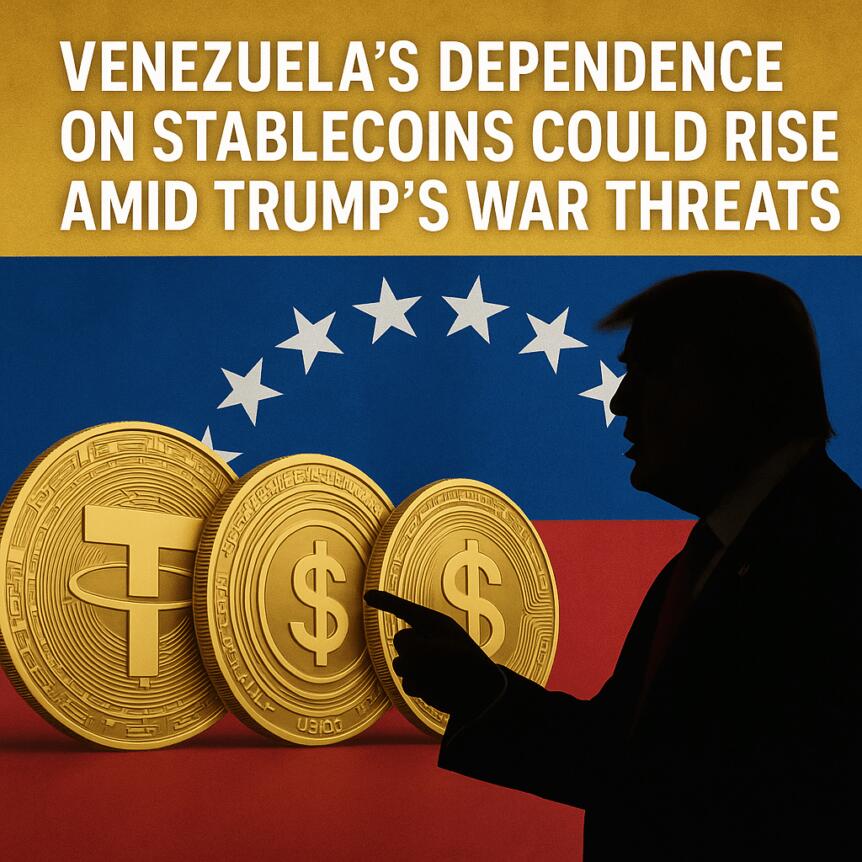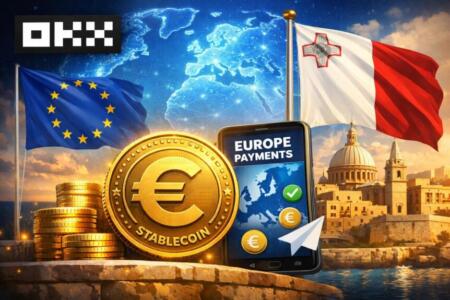Venezuela’s reliance on stablecoins like Tether (USDT) is poised to intensify amid mounting geopolitical tensions, escalating sanctions, and the country’s ongoing economic turmoil. With hyperinflation severely devaluing the bolívar, many Venezuelans have turned to cryptocurrencies and stablecoins as a safeguard for their savings and a means of daily transaction. Recent developments suggest that Venezuela is increasingly integrating crypto solutions into its economy, potentially reshaping its financial landscape in uncertain times.
- Venezuela’s economic instability pushes citizens towards stablecoins to protect wealth amid hyperinflation.
- The Venezuelan government employs stablecoins for international trade, including oil sales, with allies like Russia.
- Venezuela ranks as the fourth-largest recipient of crypto assets in Latin America, reflecting its widespread adoption.
- Nobel laureate and activist Maria Corina Machado uses Bitcoin to safeguard her assets from seizure.
- Ongoing geopolitical tensions, including a US military presence, threaten further economic disruption in Venezuela.
Venezuela’s deepening economic crisis has made stablecoins a necessity rather than a choice for many of its citizens. As hyperinflation erodes the bolívar’s value, stablecoins like Tether (USDT)—widely termed “Binance dollars”—have become integral to daily commerce and savings preservation. This trend, driven by inflation rates surpassing 300%, highlights how crypto is reconfiguring the nation’s financial landscape.
The Venezuelan government has increasingly incorporated stablecoins into its economy, notably leveraging them to facilitate oil exports amid international sanctions. The strategic partnership with Russia, formalized earlier this week, underscores a shared move toward digital financial solutions to bypass traditional sanctions and bolster trade.
According to The New York Times, President Nicolás Maduro has successfully “rewired Venezuela’s economy to stablecoins,” with estimates suggesting that nearly half of the legally imported hard currency now flows through crypto channels. This shift indicates that Venezuela may be among the first countries to manage a significant portion of public finances using cryptocurrency, reinforcing the nation’s pioneering role in crypto adoption in Latin America.
Venezuela ranks fourth in LATAM crypto adoption
As a result of ongoing sanctions and hyperinflation, Venezuela has become the fourth-largest crypto recipient in Latin America, with payments totaling approximately $44.6 billion from July 2024 to June 2025, according to Chainalysis. The country trails only behind Brazil, Argentina, and Mexico, all with larger populations, underscoring the rapid rise of crypto use among Venezuelans desperate to preserve value and gain access to global markets.
Notable crypto advocates in Venezuela
Maria Corina Machado, a prominent political figure and Nobel Peace Prize laureate, exemplifies the growing use of crypto for activism and asset protection. She employs Bitcoin to secure her wealth against seizure efforts by the Maduro government, illustrating how digital currencies are becoming tools for financial sovereignty among opposition leaders. Machado’s outspoken support for Bitcoin emphasizes its role in defending human rights and democracy in Venezuela’s turbulent political landscape.
Since Maduro’s rise to power in 2013, nearly 8 million Venezuelans have fled the country, driven by hyperinflation, shortages of essentials, and socio-economic chaos. Many have lost access to traditional banking systems, turning to crypto and stablecoins to transfer wealth out of Venezuela and retain some semblance of financial stability.
These developments highlight how cryptocurrency adoption is reshaping Venezuela’s economy and geopolitics, with crypto increasingly serving as an alternative financial infrastructure amidst uncertainty and sanctions.



